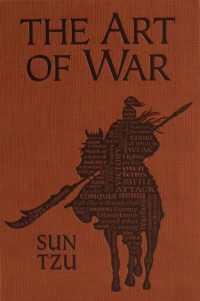Sun Tzu stands as one of history’s most influential strategic thinkers, whose ancient wisdom continues to shape how modern leaders approach competition, conflict, and decision-making. Though shrouded in historical mystery, the strategic principles attributed to him have transcended their military origins to become fundamental teachings for anyone seeking to understand the dynamics of power, positioning, and victory.
The Master of Strategy
What makes Sun Tzu’s work extraordinary is not just its military applications, but its profound understanding of human nature, psychology, and the fundamental principles that govern all forms of competition and conflict. His approach to strategy is holistic, considering not just tactics but the deeper philosophical and psychological dimensions of leadership and decision-making.
Unlike many military treatises that focus on weapons and formations, The Art of War emphasizes the mental and strategic aspects of conflict, making it endlessly applicable to modern business, politics, and personal development.
Core Strategic Principles
Win Without Fighting
Sun Tzu’s supreme strategic principle is achieving objectives without direct confrontation. This philosophy emphasizes the power of positioning, preparation, and psychological advantage over brute force. In modern contexts, this translates to outmaneuvering competition through superior strategy rather than resource-intensive battles.
Know Yourself and Your Enemy
Perhaps his most famous principle emphasizes the critical importance of information and self-awareness. Sun Tzu understood that victory comes from accurate assessment of relative strengths and weaknesses, both one’s own and those of competitors or opponents.
Long before modern intelligence agencies, Sun Tzu recognized that information control and strategic deception are fundamental to gaining advantage. This principle has evolved into modern concepts of competitive intelligence and strategic communication.
Speed and Timing
Sun Tzu emphasized the importance of rapid action and perfect timing. He understood that strategic windows are often brief and that hesitation can transform potential victory into defeat.
Philosophical Depth
The Paradoxes of Power
Sun Tzu’s work is filled with strategic paradoxes that reveal deep truths about leadership and power: appear weak when strong, strong when weak; advance by retreating; win by yielding. These paradoxes teach leaders to think beyond conventional approaches.
Adaptability as Strength
Rather than rigid adherence to plans, Sun Tzu advocated for fluid adaptation to changing circumstances. Like water that takes the shape of its container while maintaining its essential nature, effective strategy must be both flexible and purposeful.
The Psychology of Victory
Sun Tzu understood that victory is often psychological before it becomes physical. By breaking the enemy’s will to fight, conflicts can be resolved with minimal actual confrontation—a principle highly relevant to modern negotiation and competitive strategy.
Modern Business Applications
Competitive Strategy
Sun Tzu’s principles form the foundation of modern competitive strategy. His emphasis on positioning, market intelligence, and indirect approaches has influenced everything from startup strategy to corporate warfare.
Leadership and Management
His insights about leading through crisis, maintaining team morale, and making decisions under uncertainty provide timeless guidance for modern executives facing rapidly changing business environments.
Negotiation and Diplomacy
The psychological insights and strategic positioning concepts from The Art of War have become fundamental to negotiation theory and diplomatic strategy.
Contemporary Relevance
In today’s hyper-competitive, information-rich environment, Sun Tzu’s strategic principles are more relevant than ever:
- Information Warfare: His emphasis on intelligence and deception presaged modern concepts of information warfare and competitive intelligence
- Agile Strategy: His advocacy for flexibility and adaptation aligns with modern agile methodologies and rapid response strategies
- Psychological Leadership: His understanding of morale, motivation, and psychological factors in conflict provides frameworks for modern leadership challenges
- Resource Optimization: His focus on efficiency and achieving maximum results with minimum resources resonates with modern lean thinking
- Network Strategy: His concepts of alliances and positioning apply directly to modern network effects and ecosystem strategies
The Timeless Strategist
What makes Sun Tzu’s work endure across millennia is its focus on universal principles rather than specific techniques. While weapons and tactics become obsolete, the fundamental dynamics of competition, human psychology, and strategic thinking remain constant.
His approach teaches leaders to think systemically, act strategically, and understand that true victory comes not from defeating others but from positioning oneself so advantageously that victory becomes inevitable. This philosophical approach to strategy—combining practical wisdom with deep psychological insight—continues to influence how leaders approach challenges in every domain of human endeavor.
Sun Tzu’s legacy lies not just in what he taught about war, but in what he revealed about the nature of conflict, competition, and human behavior itself. In an age of increasing complexity and rapid change, his emphasis on adaptability, intelligence, and strategic positioning provides a timeless framework for navigating uncertainty and achieving sustainable success.



